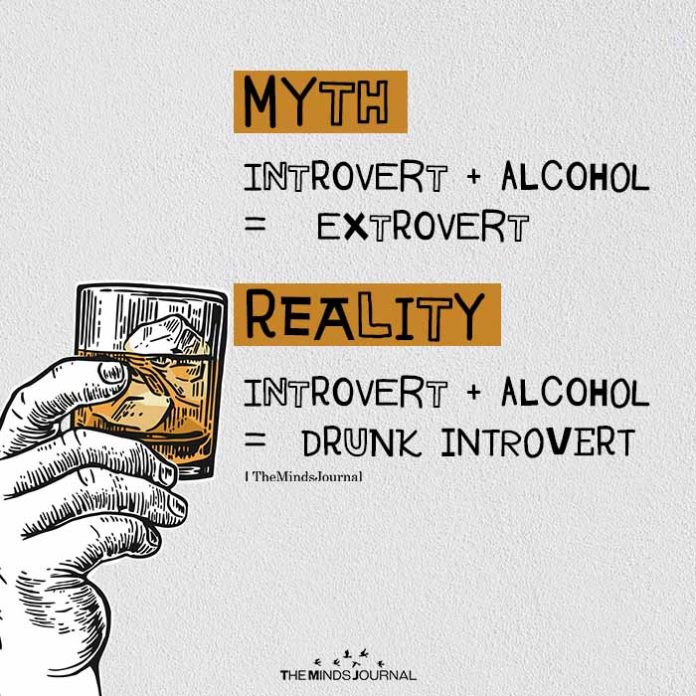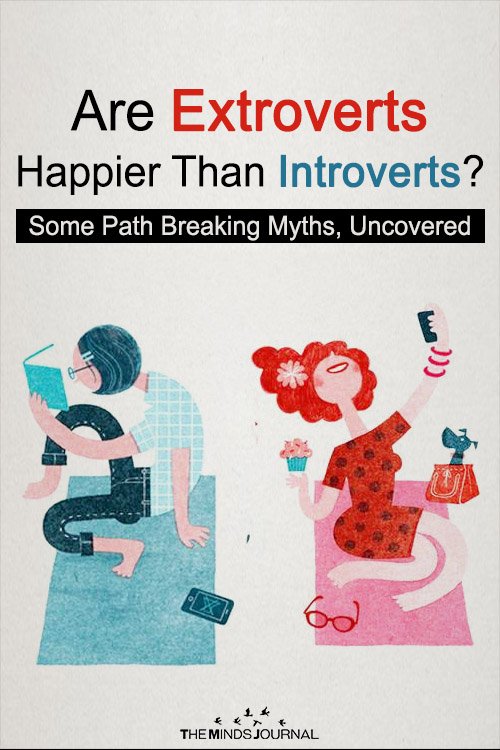Are you an extrovert occupied with socializing? Do you feel the need to constantly talk and build bridges? Many of us rarely feel that silence and introversion could be second nature to most people! But, are extroverts happier?
We live in a world that celebrates the extrovert and wants to show its social face of being outgoing, talkative and popular. Introverts are labelled as unpopular and reserved, often tested for their meekness and questioned for their silence!
Are introverts really unsuccessful people and unhappy in their hearts?
Here are some path-breaking myths, uncovered!
1. Studies and research have proved that happiness is clearly dependent on personalities rather than material possessions.
A study that looks at the behaviour of people internationally found that those who moved about spending their days as an extrovert lead happier lives, in spite of geographical locations and culture.
But is this wholeheartedly true?
Studies show that introverts have a zeal and vigour in them that propels them to hard work. They rarely give up and are not fazed by outward appearances. Introverts can make a fair difference to their state and economic situation without being dependent on the outside world.
“if people have a tendency to be more introverted and then intentionally engage in extroverted behaviour, they still benefit or become happier,” as per Jennifer Beckjord, senior director of clinical services at UPMC Western Psychiatric Hospital.
Related: Introvert In A Relationship: Love me but please don’t drain me too much
2. Studies show that there is a flaw in how personalities are measured.
There are many tests, which rate extroverts higher on happiness than introverts. Many psychologists focus on the NEO PI-R assessment while they conduct happiness and only focus on the presence and absence of extroverted qualities like socializing and interacting with the outside world. The idea is to shatter this misconception and positively evaluate the introverted qualities.

As an introvert, you need to identify the happiness you experience while sitting with a book or even browsing the Internet and other lower key activities. These could be seen as very boring and labelled as qualities associated with unhappiness. But this is a flawed methodology!
Related: Not an Introvert, Not an Extrovert? You May Be An Ambivert
3. Extroverts thrive and get invigorated by being around peers and people and interacting incessantly.
They find calm and quiet to be very decrepit! This can be erroneous. Studies show that low key activities can also be a source of happiness!
Culture is the culprit here!
In western cultures, extroverted personalities are preferred, means people who act quickly, appear friendly and are outgoing. In other cultures, introverts may feel accepting of their inherent personality. But, introverts in western cultures may feel pressurised trying to exhibit extrovert like behaviours so that more people accept them.
So, cultural factors to a great extent affect the happiness level of extroverts and introverts!
Some studies showed that the key to happiness is having a sense of purpose, self-acceptance, and a supportive social network. Well, this is something that both introverts and extroverts can form.
Related: 11 Daily Struggles Only An Introvert Will Understand
4. Extroverts are often celebrated in our lifestyles the world over
Introverts are often made to believe that their natural wants and needs are not in cohorts with the outside world. This is faulty!
Happiness it is widely believed, as shown in research, is not dependent on your personality type.
While interaction is hugely dependent on the way we feel about the world and those around us, it is the quality of interactions that decides how we feel about relationships. Oriental cultures often consider mindfulness and calm, meditation and quiet as important to connect with our inner soul. Reaching inner happiness is important before we delve into social relationships.
Happiness is all about accepting ourselves rather than building a reputation socially. It is all about being ourselves and finding a definite purpose while creating a small and finite social circle that endears and endures time and situations. These are crucial in finding happiness in what we do and around us.
References:
- Heidbreder, E., 1926. Measuring introversion and extroversion. The Journal of Abnormal and Social Psychology, 21(2), p.120.
- DeNeve, K.M. and Cooper, H., 1998. The happy personality: A meta-analysis of 137 personality traits and subjective well-being. Psychological bulletin, 124(2), p.197.
- Buettner, D., 2012. Are extroverts happier than introverts. Psychology Today, 14.
- Schueller, S.M., 2012. Personality fit and positive interventions: Extraverted and introverted individuals benefit from different happiness increasing strategies. Psychology, 3(12), p.1166.
- Brown, C., 2015. The correlation between introversion-extroversion and measures of happiness.
- Diener, E., 2008. Myths in the science of happiness, and directions for future research.




Leave a Reply